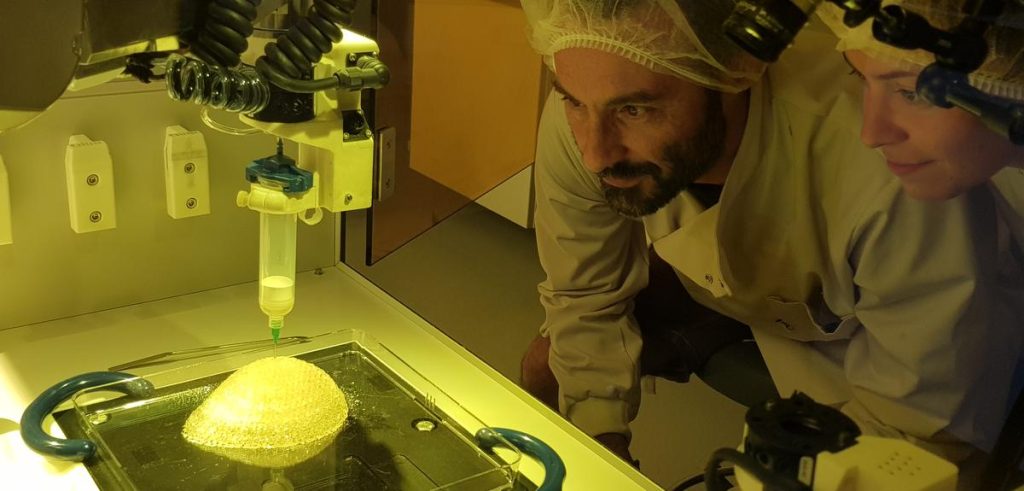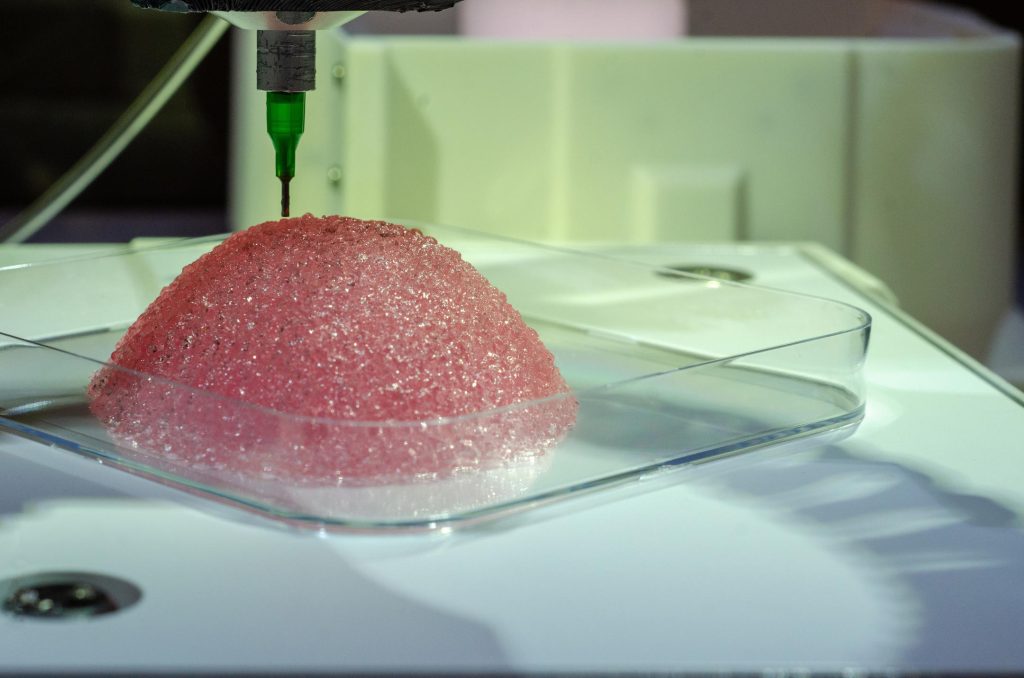Insiders and analysts predict the 3D printing trends to watch in our latest series of articles focused on the future of 3D printing.
Healshape, a Lyon, France-based regenerative medicine startup, is expecting to raise $6.8 million in Series A funding to develop 3D bioprinted breast implants using living patient cells.
The firm is supported by Pulsalys SAS, a technology transfer acceleration company, and has already received more than a million dollars in public funding and subsidies from France since its launch back in January 2020.
Healshape’s mission is to provide patient-specific 3D bioprinted breast implants for women who have undergone a mastectomy procedure after breast cancer. These implants can be printed in virtually any shape and size, and help reconstruct both the breast volume and the nipple-areolar complex without the risk of implant rejection.
“A woman will recover her own breast within six to nine months, with no trace of the bioprosthesis,” says Sophie Brac de la Perrière, CEO of Healshape. “This will help women accept their image and be happy with their bodies again.”

Over two million a year
According to the World Health Organization, over two million women worldwide are diagnosed with breast cancer every year. It is the world’s most prevalent cancer in women with almost 700,000 annual deaths.
Around 40% of those diagnosed with the condition end up having to undergo a mastectomy, a procedure that involves either partial or full removal of the affected breast tissue. With modern-day treatments, however, survival rates are greater than 90%, meaning more and more women are seeking breast reconstruction treatments to replace the lost tissue.
Many of these breast reconstruction surgeries involve using either an artificial implant or soft tissue matrices from other humans and animals. Unfortunately, implants from these sources can result in too much variability for treatments to be considered reliable and there’s always the risk of an immune response, which can slow down the healing process.
Healshape’s tissue engineering approach aims to address these issues by combining 3D bioprinting technology with living cell cultures taken from the patients themselves.
Bioprinting resorbable breast implants
The company’s bioprosthesis technology relies on a resorbable hydrogel that can be 3D bioprinted into any freeform shape. Once implanted in the patient, a fat transfer of the patient’s own body cells helps colonize the breast implant and develop it into natural breast tissue, all while the hydrogel is gradually resorbed and replaced.
Healshape’s technology is the result of extensive bioprinting studies conducted by the 3d.FAB platform led by Christophe Marquette, a CNRS senior researcher at the Institut de Chimie et Biochimie Moléculaires et Supramoléculaires (ICBMS), in collaboration with LabSkin Creations, a tissue engineering company founded by Amélie Thépot and Morgan Dos Santos. Healshape’s bioink technology is now patent-protected.
Marquette adds, “Initially, the technology was developed to print skin substitutes. For the Healshape project, it was necessary to adapt the process to printing volumes, and ensure subsequent consolidation of the biological ink to make it compatible with implantation in the body.”
Healshape’s 3D bioprinting technology is currently at the preclinical stage, with clinical trials expected to commence within the next two years.

Just recently, Korea-based biotech startup Plcoskin announced that it’s set to lead an international joint research project focused on developing a new type of 3D printed breast implant. Together with Yonsei University and LipoCoat, a Netherlands-based medical device coating company, Plcoskin will receive approximately 2B won ($1.7M) over the next three years.
Elsewhere, 3D printer manufacturer 3D Systems recently announced a co-development agreement with CollPlant, a regenerative medicine firm, to develop 3D bioprinted soft tissue structures for breast reconstruction treatments. Implemented in conjunction with a breast implant, the soft tissue structures will be used to provide support for the lower breast and expand the implant pocket, increasing the overall coverage of the implant. Much like Healshape, the ultimate aim is to improve the success rates of breast reconstruction surgeries for cancer survivors.
Subscribe to the 3D Printing Industry newsletter for the latest news in additive manufacturing. You can also stay connected by following us on Twitter, liking us on Facebook, and tuning into the 3D Printing Industry YouTube Channel.
Looking for a career in additive manufacturing? Visit 3D Printing Jobs for a selection of roles in the industry.
Featured image shows Healshape scientists 3D bioprinting a custom breast implant. Photo via Healshape.


